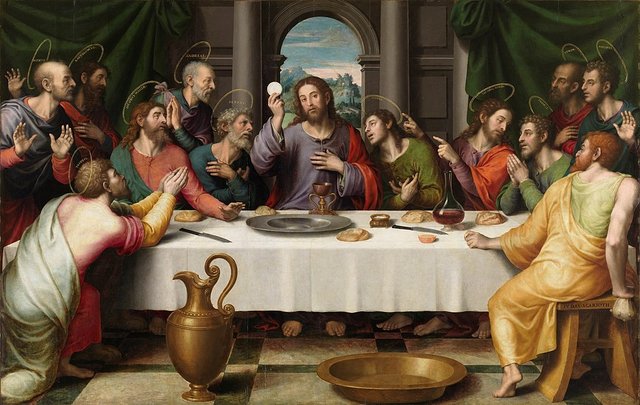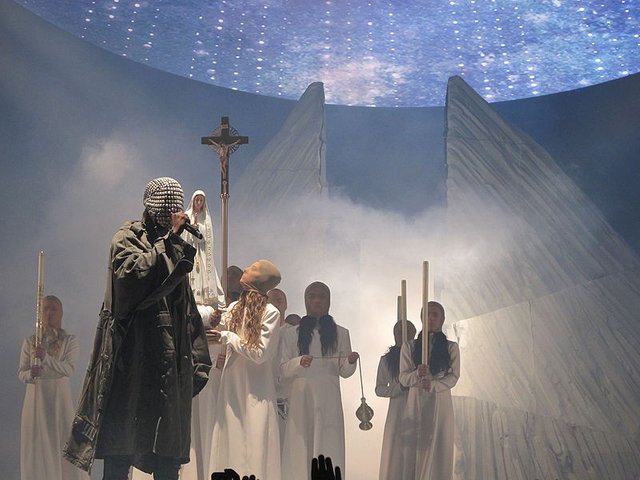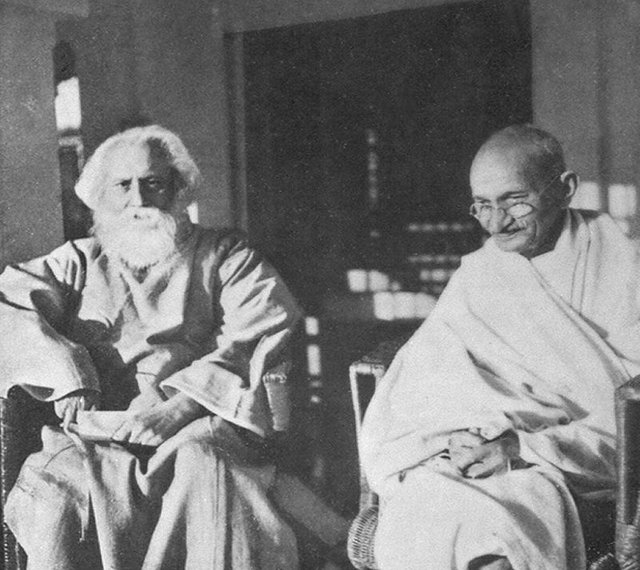Changing the world without being seen: How to start a quiet revolution
Today, Gandhi would be hatching dank memes behind a VPN. He would know that preaching on the street would see him kettled by riot police. Today, Jesus wouldn't overturn the tables of the money-lenders in the 'temple'. He would know he would be arrested on the floor of the stock exchange by Homeland Security and strip searched at gunpoint before being waterboarded. Instead, he would launch his own cryptocurrency and undermine debt-based currency by superseding it.
The modern revolutionary is quiet, invisible, and fiercely intelligent. The modern revolutionary is unknown; and she will remain so.

Jesus couldn't launch an anonymous ICO, so the state executed him for his financial revolution
Learning from the failure of history's Messiahs
Revolutionaries used to come in the form of quasi-mythological figures like Jesus, Gandhi, Che Guervara or Martin Luther King. But the modern revolutionary knows that visibility makes him or her a target for attack. The modern revolutionary knows that the oppressor wants him to become an icon; to become visible and celebrated, because then the oppressor can kill or harass him. The state wants activists to Kanye themselves, so that the oppressor knows where to target their attacks.

Kanye West's public rebellion against the state has marked him out for attack by the establishment.
Rebels without a name
The modern revolutionary is clever, and goes by a personal pseudonym, like Satoshi, or a collective pseudonym, like Anonymous. But the most effective modern revolutionaries are not seen at all; have no known names; and will die unknown. As was written in the Tao Te Ching:
“The best leaders are those their people hardly know exist.
The next best is a leader who is loved and praised.
Next comes the one who is feared.
The worst one is the leader that is despised …
The best leaders value their words, and use them sparingly.
When they have accomplished their task,
the people say, “Amazing!
We did it, all by ourselves!”
The death of the visible revolutionary
We are taught through mythology and history to view heroes and revolutionaries as figures of public awe and reverence. But could this actually be the means by which governing powers program us to flag ourselves up for attack? Because we are indoctrinated with the vision of revolutionary as heroic celebrity, the temptation is to follow this pattern and single ourselves out from the general population.
Just as oppressive states know exactly how to dismantle a public protest, they are also well-practiced in the art of discrediting or murdering any leader who seeks equality or justice. The assassination of public leaders, or the unrelenting harassment of leaders, is a well-practiced technique that powerful states have developed to quell dissent.
In short: Governments condition their citizens in childhood with the myth of the public revolutionary. Then, when those children grow into adults, if they start a revolutionary movement, they will 'act-out' that 'revolution' in ways that the oppressor has programmed them to do so; ways in which the oppressor knows are easy to spot and destroy.
So: not only are we subconsciously schooled in the means by which to comply with authority; we are also programmed with the means by which to resist it.
Resistance is not futile, but the way we have been programmed to resist is often futile.
Our public displays of leadership then makes our assassination or discrediting a simple task. Such was the fate of Martin Luther King; Jesus; Ghandi; JFK, to name just a few.

Ghandi was hampered by the lack of an anonymous internet connection. And the lack of an internet.
Modern revolution starts with anonymity
The media machine of the oppressor knows exactly how to target an individual for harassment or violence. It does not know, however, how to attack an invisible opponent, or a decentralized movement. The state often relies on the human propensity to accept ad-hominem attack on public figures, but it is harder to attack a revolution when it comes from all places at the same time, and with no face.
Instead of the next generation of leaders offering themselves up to the oppressor through public speeches and rallies, these revolutionaries will enact change through the architecture of new technology. For example, nothing did more to destroy the prominence of oppressive organized religion than the invention of the electric light-bulb.
In a similar way, Bitcoin has done more to prepare the way for the abolition of debt-based fiat currency than the public protests of the Occupy Movement ever achieved.
The technologies of our new revolutionaries will always outpace those of the oppressor, and exponentially. This is for the simple reason that love is a state of higher-consciousness and ultimately produces better, more enduring technologies. Our oppressors taught us the concept of 'fighting' but we are learning not to use this same concept against them.
Instead of wasting our energy fighting the things we hate; we're building the things we love.
Welcome to the quiet revolution.
What do you feel? Is anonymous revolution the future of dissent and action? Or should we keep looking to messiahs, revolutionaries and Kanyes to enact social change? Let me know in the comments section below. I'm open to other ideas.
Yes absolutely @matrjoschka, I think so and agree!
Dissent need not be throwing stones at windows or any form of activism. It is more likely to be a refusal to co-operate in the game of conditioning enactment that you give an example of above, a refusal to just accept received info/wisdom because 'they say so'. Action then, is primarily at a psycho-emotional level where the individual is self-empowered through self-discovery and self-understanding, such that she (I'll give happily stick with this pronoun :) is no longer vulnerable to the triggers of programming, as she has already de-programmed herself. In other words, nobody else may see or understand the details and dynamics of this profound and powerful revolution but the individual going through it. The fact of a revolution having taken place inside her will be clear to most on the outside, who will themselves be inspired when they see that it can be done for oneself and one does not need to wait for anyone to fire any starting gun or organise one's life into little boxes.
Tipping point, critical mass, raising of individual and collective consciousness, empowerment, abundance, integrity and the deep intention of harmonious living....that's how I see the already-taking-place-silent-revolution.
Thank you 🔆
🚣
Exactly!
So refreshing and inspiring to hear your perspective :)
This is beautiful, you know, the thing is sometimes people who are persecuted and matyred for just and public cause are even more recognised leaders as well you know , they are endearing and they attract the sympathy and loyalty of the people.
Thank you, @josediccus
Are you saying that you feel like there is still a place for public 'leaders'?
This is something I've been thinking about a lot recently. Having experienced a small taste of the aggression that is targeted at 'leaders', I personally felt I could do more efficient work to build a better future away from the public eye.
I also see how the media and state demonizes any public figure that speaks out against them. It now feels more effective to work behind the scenes to improve society than confront power directly in an arena it knows so well how to fight in.
Yes I think people still believes in public leaders because they tend to tell the truth, they are transparent and in most cases, they're like the voices of the people you know but the real voted leaders are always against these kinda people, that's why they end up as martyrs
What you said is true, but your reasoning about what Iesus and Gandhi would are incorrect.
Iesus and Gandhi went to the places where the people hung out and talked with them. Now, our place for enlightened discussion is the interwebs.
Both Iesus and Gandhi were caught, strip searched at gun point and then water boarded.
The difference between then and now is... Well, in the times of George Washington, if a tax collector was being too overbearing, the town would get together and remove his house, one brick a piece.
Later, protests were broadcast on the news. Today, only the ones the news wants you to hear about are broadcast. And they may be completely staged for the camera.
So, you are correct that this coming evolution will happen on the interwebs. And further, that fighting a corrupt system does nothing without 90% of the people behind you. So, building a new system that everyone can flee the old system for, is indeed the way to go.
At this time. Things may change in the near future.
Thanks for your thoughts, @builderofcastle
I agree with you, that some revolutionaries of the past were effective and their methods did have an impact. It was useful to talk with people and spread ideas. I think what I am exploring here is, like you say, the reality of our modern predicament: One where the media and the state (arguably parts of the same institution: big business) conspire to so effectively crush revolutionaries when they appear in the form of singular, charismatic leaders, that this method of enacting change is almost suicidal.
I personally can't think of a single revolutionary having an impact on the world via the media at the moment. Edward Snowden comes to mind, but he is almost invisible in the mainstream media. Nor was it possible for him to stage his revolution without facing instant imprisonment by the state he was trying to enlighten. At least Gandhi was free to walk around a bit and talk to people about his ideas.
It may be that the struggles of today, especially in the west, appear not to be existential: There is not, for example, a food shortage, and state violence is largely covert: enacted through oppressive taxation without representation, and poor working conditions, police brutality towards non-white settlers. Climate change is mostly invisible to the masses (for now). The things we have a shortage of: compassion; community; connections; equality; I feel must be constructed through new ideas, distributed electronically, and sustained by building new systems to supersede the corrupt ones. And I feel these new systems are best built quietly, out of sight of the oppressor, without too much obvious leadership.
I suppose I feel, in myself, the temptation to become a public spokesperson for a certain perspective, but I feel like doing so leaves me open to unnecessary attack, and distracts from the underlying task: To build a better world.
Thanks for provoking more thoughts :)
First of all, I must to say Thank You @Clay for recommending this post! It reads so smoothly and it really drives the point home. I've been saying for quite some time that we need to stop thinking in terms of electing leaders, and mortal agents... we need to elect ideas - they cannot be physically targeted or muted because their are in the heads of us all.
The only obstacle is for the ananimous revolutionaries to agree which ideas they want to promote... because unfortunately there are a lot of bad ideas that are also squeezing their way through the gaps in our knowledge, out understanding, and the unwillingness to separate ideas from identity.
Major kudos though for expressing this idea so beautifully, resteemed!
Also, "activists Kanye themselves" - gave me a good laugh, i'm going to start using it - the applications are broad. :)
Thank you, @ankapolo
Yes, I agree. The revolution is decentralized :)
It's interesting what you say about separating ideas from identity. I think this might be the key to more balanced political structures. We should be able to elect ideas rather than characters.
Kanye is someone I feel is trying their hardest to be a good-hearted revolutionary while under constant attack from all directions (including by the ghosts of his past traumas). I think Kanye could be more effective by focusing on his music and avoiding the circus of media attention.
Thanks again for reading the post. Glad you enjoyed it.
the new form of revolutions might start in that way who knows or is it a start already :)
Great job! Reading this was inspirational and very insightful. I would say Banksy is a good example of this. He chooses to stay out of the light in order to pursue his idea of the revolution. Either way, thank you for perspective and approach on this subject. Following
Thanks @pattoounlimited
Yes, Banksy is a great example. And a very strong activist.
Get your post resteemed to 72,000 followers. Go here https://steemit.com/@a-a-a
This post has been resteemed from MSP3K courtesy of @clayboyn from the Minnow Support Project ( @minnowsupport ).
Bots Information:
Join the P.A.L. Discord | Check out MSPSteem | Listen to MSP-Waves
"Instead of wasting our energy fighting the things we hate; we're building the things we love"
The above point passed a great message to me, there's no need wasting time for things we don't like..... It's better investing that time in better things that will pay in future.
Thanks for sharing this my Friend.
Thanks for reading @kemikay
Glad you saw a positive message in it :)
Judge Anna FTW, how's that for a curve ball :D